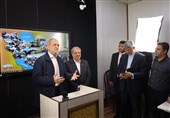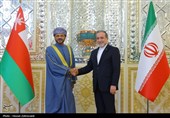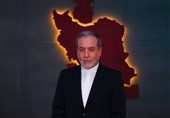SCO Chief Highlights Iran’s Role in Int’l Security
TEHRAN (Tasnim) – Describing Iran as an influential country that maintains close political and trade relations with the Shanghai Cooperation Organization (SCO) member states, the secretary general of the SCO highlighted Iran’s major role in ensuring regional and international security.
In a meeting with Iranian President Ebrahim Raisi, held in Uzbekistan’s Samarkand on Thursday, SCO Secretary General Zhang Ming hailed Iran as a great and influential country that can play a significant role in regional and international security.
Known as a major country in the region, Iran also holds close political and trade relations with the SCO members by relying on its broad historical and civilizational commonalities with the regional countries, Zhang Ming added.
Pointing to the arrangements made by the SCO’s secretariat for Iran’s membership in the SCO, the Chinese diplomat said he and Iranian Foreign Minister Hossein Amirabdollahian have signed the memorandum of commitments allowing Iran to join the organization.
According to the memorandum, which includes 40 documents, Iran will attend the next year’s summit of the SCO as a full member, Zhang added.
For his part, Raisi explicated Iran’s extensive capacities in the political, economic, technological and transportation fields.
The Iranian president also expressed the Islamic Republic’s readiness for close cooperation with the SCO member states in various arenas.
By signing its first memorandum of obligations, Iran's accession to the full membership of the organization will be finalized by April 2023.
The Eurasian political, economic, and security alliance was formed in 2001 by Russia, China, Kyrgyzstan, Kazakhstan, Tajikistan, and Uzbekistan at a summit held in Shanghai.
China, Kyrgyzstan, Pakistan, Russia, Tajikistan, India, Kazakhstan, and Uzbekistan are its current full members. The Islamic Republic of Iran was accepted as a main member of the SCO by the vote of all member states at the conclusion of the 21st summit in Dushanbe in September 2021.
The organization accounts for 40 percent of the world's population and 28 percent of the global gross domestic product (GDP).






